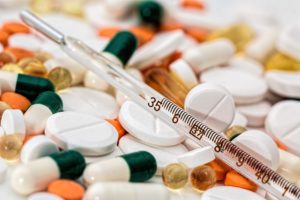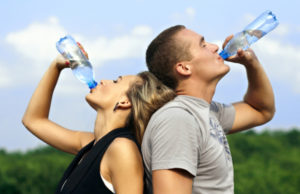
The liver is an essential organ in our body. It helps to digest the food we eat and keeps tight control over the level of fats in our system. However, when it becomes overloaded with fat, it starts producing high amounts of liver enzymes called fatty acid amino ethanol (FAA). As a result, it leads to fatty liver disease or more commonly known as “fatty livers.” Discover the 8 top methods of Fatty Liver Detox and do it gradually, so don’t stress out while still getting the results you want.

A Low-Fat Diet
The first method to treat fatty liver detox is to eat a low-fat diet. It is essential to keep the fat calories down because it regulates the level of cholesterol in the body and controls blood pressure. Fatty liver disease develops when cholesterol levels in the blood are high, and the body cannot get rid of it. A diet low in fat can help to prevent this disease. A low-fat diet has many health benefits, including a reduced chance of developing heart attacks, strokes, and high blood pressure. People who consume a low-fat diet are also likely to experience reduced body weight and a reduced risk of developing many chronic diseases like cancer, diabetes, and autoimmune disorders.

Monitor Your Use of Medications
Medications like diuretics, statins, and anabolic steroids can cause liver damage. It is essential to keep an eye on how you are using these medications to prevent developing a liver disorder. If you think you are taking too many of these medications, stop taking them immediately to see if the problem worsens. To avoid harmful interactions between drugs, you should speak to your doctor before starting any new medication. You can also check with your doctor on safely discontinuing certain medications.

Exercise Regularly
Many people think that an occasional walk or bike ride is enough to boost the metabolic rate and reduce the risk of developing fatty liver. However, this is not the case, as exercise does not just improve your cardiovascular system. It also boosts your metabolic rate and helps get rid of toxins like acid from the body. Exercising regularly helps tone and strengthen your muscles, but it also helps cleanse your system. As a result, your body will be less likely to produce harmful chemicals called by-products formed during aerobic exercises. Aerobic exercises include walking, running, cycling, swimming, and dancing. Many types of exercise can be done for liver detox. The most important one is exercise. The more regularly you exercise, the better your liver will function. Some research suggests that physical activity may reduce the risk of fatty liver disease by up to 50%.
Limit Your Contact With Environmental Toxins
Unfortunately, things we eat and drink can also damage our bodies. It is essential to monitor your intake of various nutrients but especially important to look for toxins that you may be consuming. Look for foods with a high lead, manganese, or arsenic content and avoid consuming dairy products, meat, fish, poultry, salad, and vegetables sitting out for a long time.

Limit Your Alcohol Consumption
Drinking a few glasses of wine or beer does not automatically mean you have a fatty liver. A fatty liver disorder can develop when you consume large amounts of alcohol. The body can’t get rid of the toxins contained in the alcohol, so it gets stored in the liver. People who consume large amounts of alcohol are more likely to have a fatty liver than those who drink moderate alcohol. If you consume more than six drinks per week, you will develop fatty liver.

Get Enough Fiber
Fiber is a significant player in the fight against fatty liver and helps regulate your bowel movements. It helps maintain a healthy bowel movement frequency and keeps your digestive system working efficiently. If you do not consume enough fiber, you will experience constipation, leading to a fatty liver. The recommended amount of fiber for healthy individuals is about 25-35%. People underweight or just starting a weight gain should aim for a higher fiber intake. People who consume sugar-free snacks or desserts frequently also tend to have a low fiber intake and can develop fatty liver.

Stay Hydrated
It is essential to stay hydrated whenever you are on a diet to avoid becoming dehydrated. One of the significant reasons for fatty liver disease is excess sweat and lipids (fat) production. Once you have an adequate amount of water in your body, excess water (called “imbalance water”) is due to escape from your body through your pee. To stop this from happening, you need to stay hydrated. The easiest way to stay hydrated is to drink eight glasses of water a day. However, this is only the tip of the iceberg for staying hydrated. You need to drink additional water to get the rest of your body water content. Still, eight glasses of water are considered sufficient for most people.

Drink Coffee
Coffee has been used as a drug for more than 100 years, and it’s still listed as a “stimulant” in the Food and Drug Administration (FDA) database. This means that it probably has a lot of potential for improving health. Coffee is a diuretic beverage that will rush out of your system when you do not want it to. As a result, it is essential to stay hydrated and drink water with coffee. The caffeine content in coffee can also cause harm to the liver. For people who want to try a natural way to boost their liver function, coffee is a good option.
Conclusion
Fatty liver disease is a common condition found in people of all ages. It is often caused by obesity, diet, race, age, and even genetics. Fatty liver detox symptoms include unexplained weight loss, fatigue, nausea and vomiting, and joint pain. There are various ways to treat or prevent fatty liver disease. A low-fat diet, regular exercise, limiting your contact with environmental toxins, and drinking plenty of water are ways to get rid of this disease. Fatty liver disease can be treated with diet and exercise, but the best method is to prevent it in the first place. Reversing a fatty liver can be difficult when it get worse..


Leave a Reply